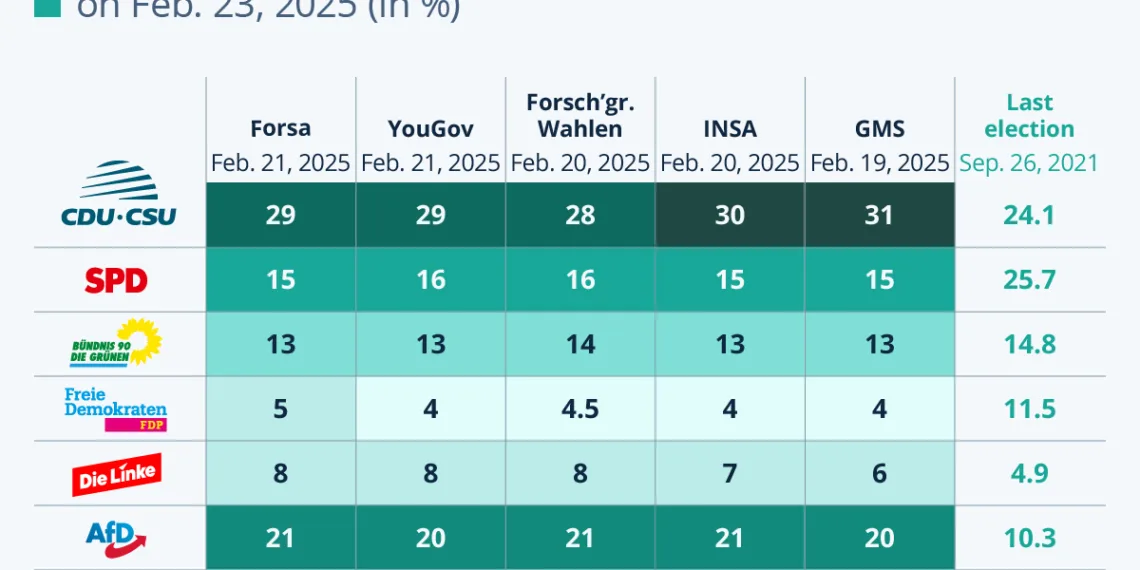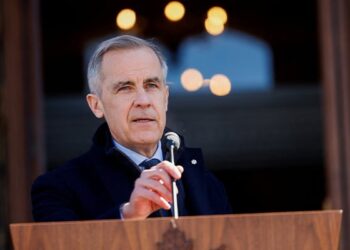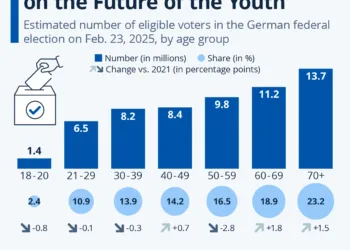Select Language:
Understanding Germany’s Upcoming Snap Election: A Snapshot of Polls and Predictions
As Germany gearing up for its snap election, political analysts and citizens alike are closely monitoring the polls and what they suggest about the future of the nation’s governance. This election arrives at a critical juncture, with various parties positioning themselves for what promises to be a highly contentious and pivotal event in German politics.
Polling Insights: The Dominance of the CDU/CSU
Recent surveys indicate that the Christian Democratic Union (CDU) and its Bavarian counterpart, the Christian Social Union (CSU), under the leadership of Friedrich Merz, are projected to secure the largest share of votes in the upcoming election. This projection is noteworthy as it reflects a shift from previous months, where margins were expected to be much wider.
What This Means for Voter Sentiment
The enthusiasm for the CDU/CSU suggests a potential resurgence for the party after years of fluctuations in public support. Such a return to prominence could signal a shift in voter sentiment towards more familiar conservative policies, especially in light of the coalition government’s challenges.
The Rise of the AfD: A Far-Right Challenge
One of the most significant developments in the current political landscape is the anticipated performance of the far-right Alternative für Deutschland (AfD). Polls indicate they may emerge as the second strongest faction in the Bundestag, possibly securing around 20 percent of the vote.
Implications of the AfD’s Surge
The rise of the AfD reflects a growing discontent among segments of the population, particularly concerning issues like immigration, economic policy, and national security. Their increasing support poses challenges for traditional parties that have historically dominated German politics, as many have ruled out forming coalitions with the AfD due to its controversial stances.
The Decline of the Traffic Light Coalition
The current governing coalition, often referred to as the "traffic light coalition" comprising the Social Democratic Party (SPD), the Liberal Democrats (FDP), and the Greens, is facing a potential rout in this election cycle. Polls suggest that both the SPD and FDP are expected to suffer significant losses compared to their performance in the 2021 elections.
The Fate of the FDP
Particularly concerning for the FDP is the possibility that it may not even clear the critical 5 percent threshold required for representation in the Bundestag. If current trends hold, the implications for the party’s future could be dire, leading to questions about its viability in German politics moving forward.
The Coalition Conundrum: A Grand Coalition on the Horizon?
Should the polls accurately reflect the election results, forming a stable government could be a complex challenge for the CDU. Traditionally, they have preferred to align with the FDP; however, the potential loss of the latter from the parliament complicates matters significantly.
The Likelihood of a Grand Coalition
In this scenario, one of the more viable options may involve a grand coalition between the CDU and SPD. While pragmatic, this approach carries significant political baggage. Past experiences of grand coalitions under Angela Merkel resulted in periods of stagnation, leading to public dissatisfaction with political leadership.
Overcoming Historical Differences
Should a grand coalition come to fruition, the CDU and SPD would need to navigate their ideological differences carefully. The prospect of cooperating to advance national interests could inspire hope for a stable government, but it also carries the risk of reinforcing the AfD’s position if the coalition fails to deliver desirable results to the electorate.
Navigating Public Sentiment
One of the essential factors in this electoral landscape is public sentiment regarding collaboration among major parties. Any perceived ineffectiveness or stagnation could further empower the AfD, illustrating the delicate balance that the major parties must achieve in managing governance and public satisfaction.
Final Thoughts
Germany’s political scene is at a crossroads as the snap election approaches. With significant shifts in party dynamics and voter expectations, the outcome will likely reshape the nation’s governance for years to come. As the electorate gears up for a critical decision, the implications of their choices will reverberate throughout the German political landscape and beyond.




